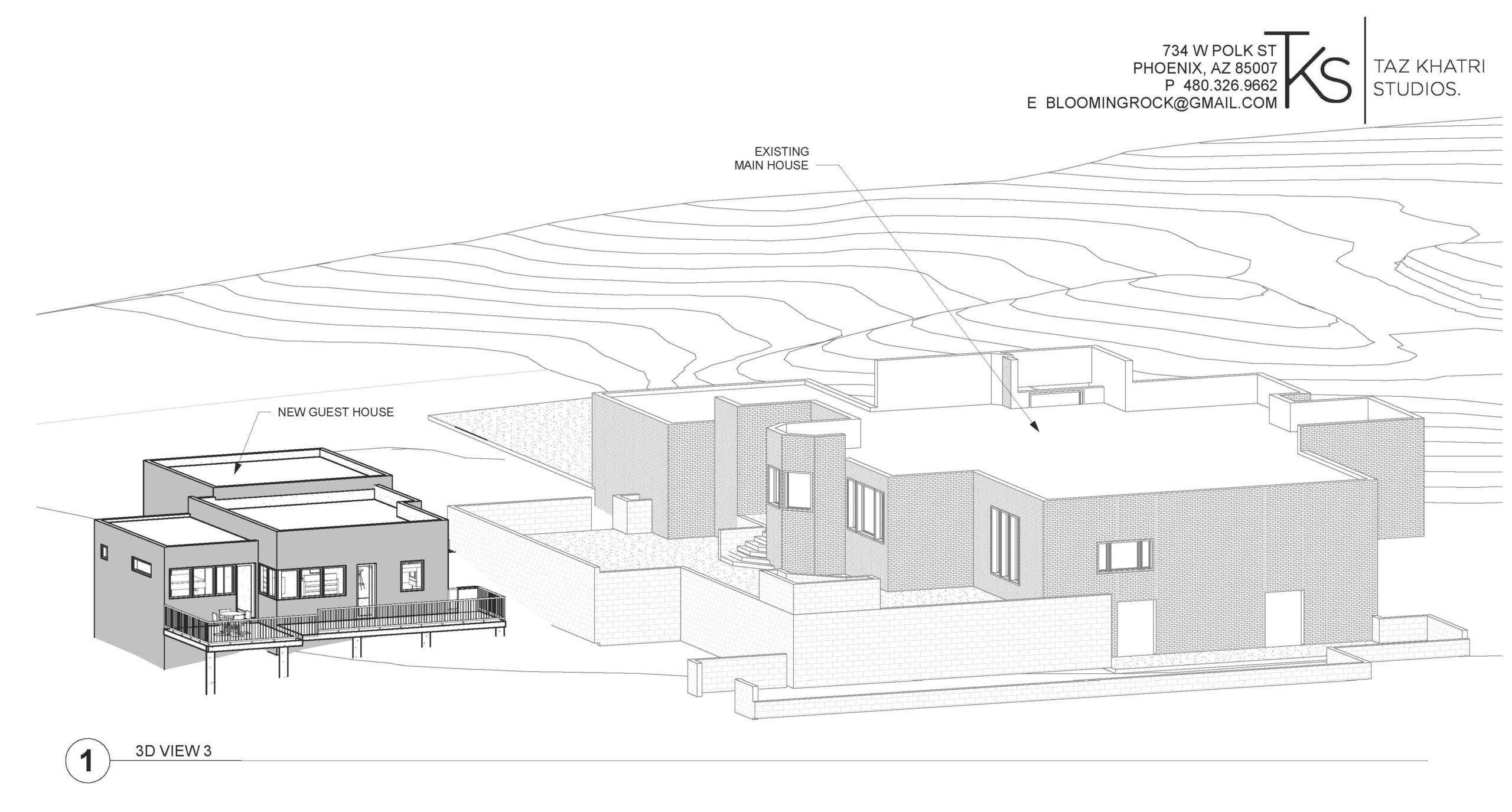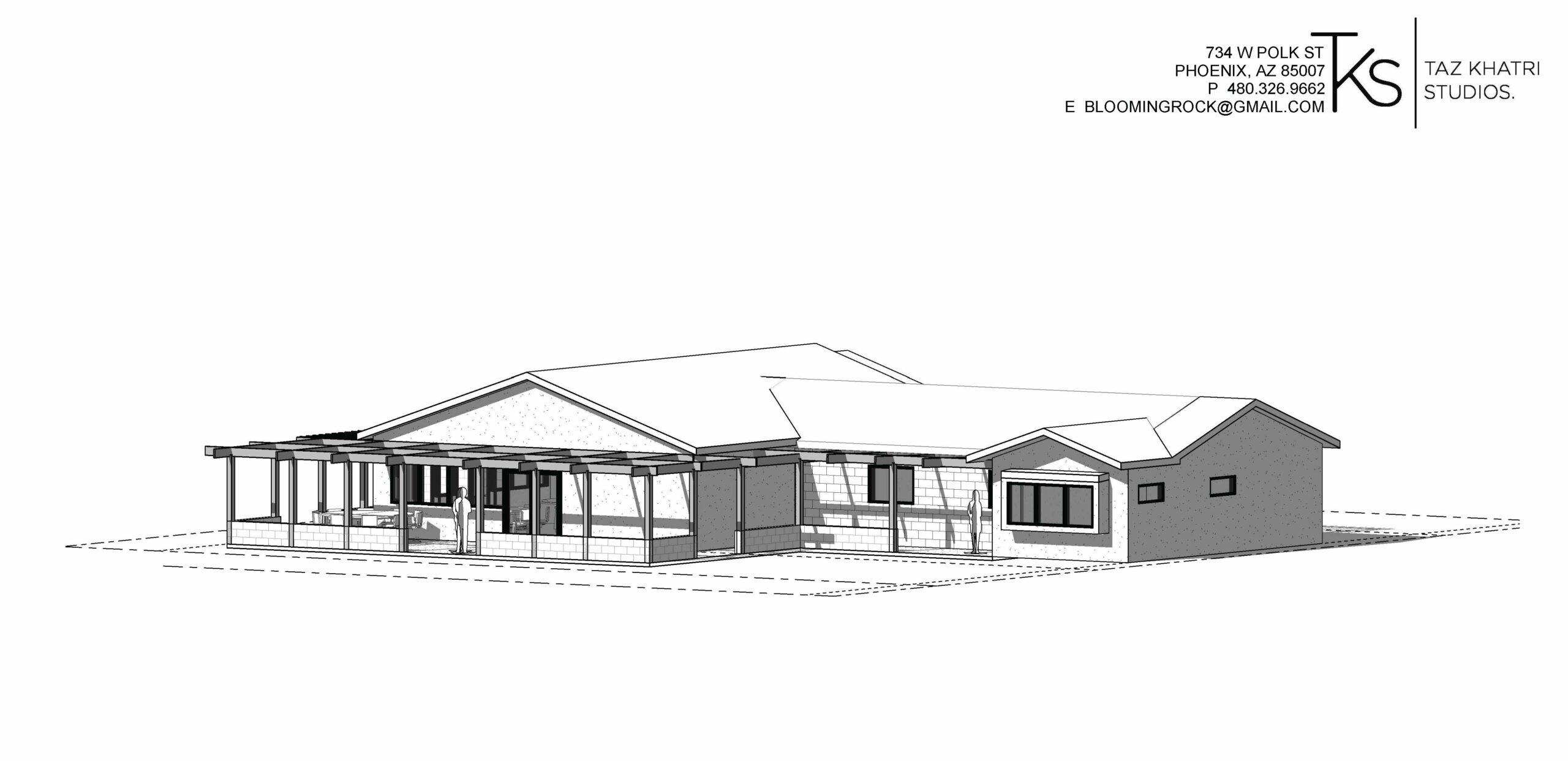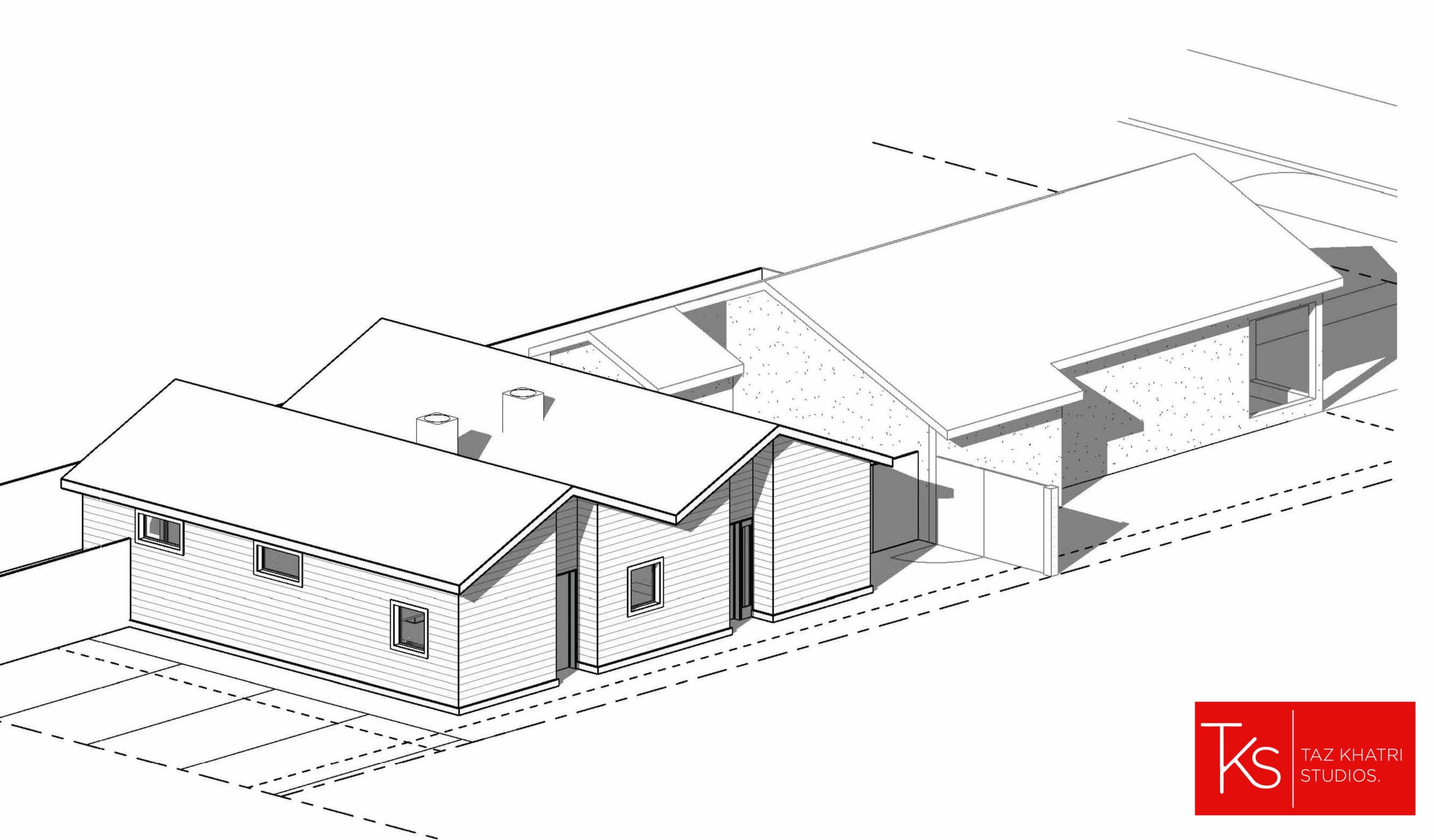On Friday I spoke on our podcast, Tea with Taz, with Josh Bednarek, the Deputy Planning Director at the City of Phoenix, about the city’s policy on accessory dwelling units. You can listen to the podcast here. Here is a recap of our conversation.
What is an accessory dwelling unit?
Josh helped us define what the city considers an accessory dwelling unit but first let’s talk about accessory buildings. Typically accessory buildings are allowed in single-family zones. Accessory buildings can be anything between a storage shed, a detached garage, or a detached office. Accessory buildings can even be a detached bedroom with a bathroom. So what makes an accessory building a dwelling? It’s the cooking facilities, says Josh. If the building has a stove than it makes it a dwelling. The way the city keeps track of this is by requiring a permit to install the 220V type of outlet that is required for a stove. If someone applies for a 220V outlet permit for an accessory building than the city is flagged that this is now an accessory dwelling unit. Also keep in mind that accessory dwellings would have to be an accessory use to the main house and therefore be smaller and be subordinate to it.
Accessory dwelling units are not currently allowed in Phoenix
There are a handful of zoning districts that do permit accessory dwelling units out of the 60+ zoning districts in Phoenix, but these are rare and few and far between. The vast majority of single-family residential zoning districts do not permit ADUs. However, some residential lots have multifamily zoning which allows more than one dwelling on the lot if other restrictions are met, such as providing additional parking and landscape and building setbacks are met. In this case the second dwelling would not be an accessory or subordinate use, it could just be a second dwelling such a in a duplex.
Why some people do not want accessory dwelling units in their neighborhoods
Some people worry that allowing accessory dwelling units will change the character of their neighborhoods. One specific concern is that residents of ADUs would need to park on the street, especially in neighborhoods that don’t have street parking now. Another big concern is that ADUs would increase the number of short-term rentals in neighborhoods. Many residents are opposed to short-term rentals coming to their neighborhoods because of perceptions of travelers having loud parties, the security risk of people coming in and out that don’t live there, and the possibility of travelers damaging property. And even if short-term rentals were somehow prohibited, ADUs are feared because the type of resident that lives in an accessory dwelling unit may be more transient, more likely to move sooner than, say, a homeowner, and some neighborhoods fear incorporating such residents into their mix.
Some workarounds to the current policy
Even though accessory dwelling units are not technically legal (yet) in Phoenix, people have found workarounds to getting the benefits of ADUs without breaking the law. Since the trigger to define an ADU is the cooking facility, a lot of times I advise my clients to use a hot plate instead of installing a full built-in stove. As long as the hot plate can plug into a regular outlet, it is legal. The accessory building with a bedroom, a bathroom, and a kitchenette with a hot plate is perfectly legal even today, although development standards apply. If you have an existing detached building, like a detached garage, that you want to convert into a sleeping space, you will have to make sure it complies with the setback requirements to be able to use the building for sleeping purposes. Otherwise you will have to call it an office.
Some people choose to install a stove after they get a permit for the accessory building and they have an illegal accessory dwelling unit. This happens and the city is aware of it. Josh reminded us that the way they enforce the current policy is on a complaint-basis. If a neighbor complains that they suspect that the accessory building is being used as a dwelling, they may report it to the city and then the city will get involved. There is no other form of enforcement besides responding to complaints.
Changes in the ADU policy are in the works!
The City of Phoenix Planning Department is working to propose a text amendment that would allow ADUs in certain circumstances. The process for this would be that the city staff would bring a draft or the concepts of the text amendment to the Village Planning Committees at least twice to get feedback and a feel of how receptive the community is to it. Based on feedback from the Village Planning Committees, the city staff will craft the language of the text amendment which most likely will be limited to allow ADUs in certain areas of the city at first. Once the draft of the text amendment gets approved by the Village Planning Committees, it will then go to the Planning Commission for approval. If it gets approved by that commission it will then go before the Mayor and the City Council for the final approval.
How can you get involved?
Go here to find out which Village Planning Committee represents your neighborhood. If you click on your Village Planning Committee it will tell you when they meet. You can get the agenda of the meetings here and keep an eye out for agenda items that include the ADU text amendment. The staff will be putting the text amendment concept in front of certain Village Planning Committees early next year. As the text amendment progresses through the various regulatory bodies you can show up to the meetings and speak up in favor of ADUs! And of course if you are not in favor, you can raise your concerns there as well.




